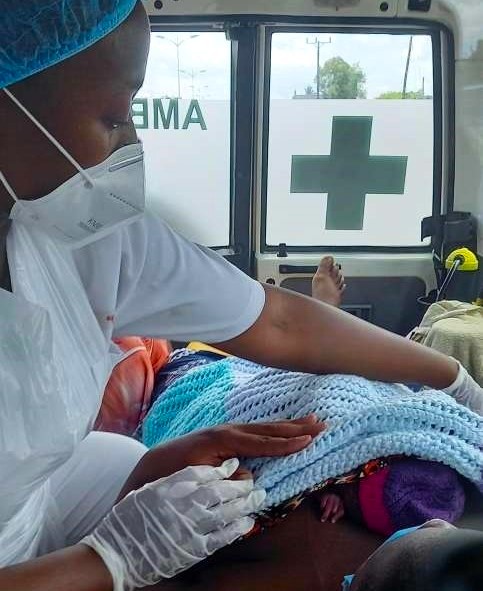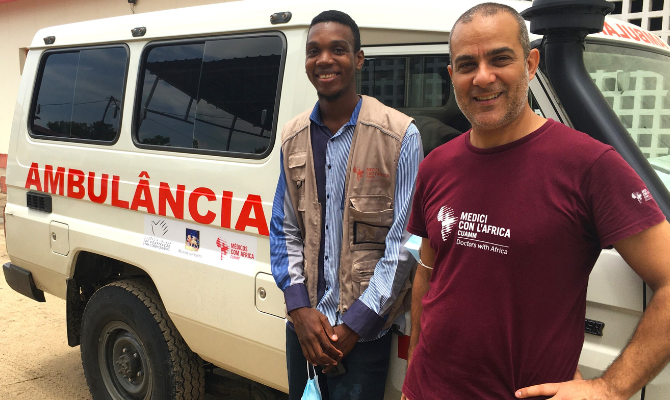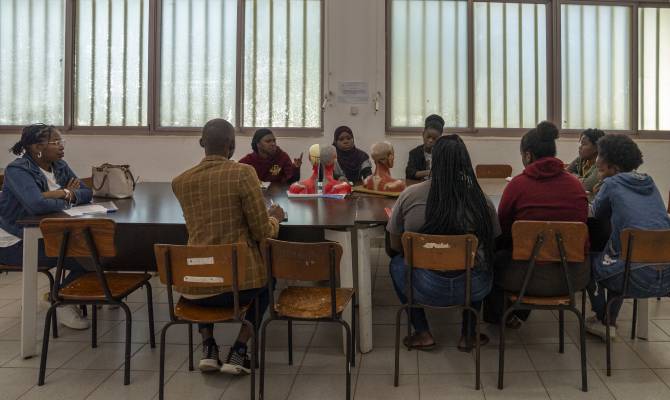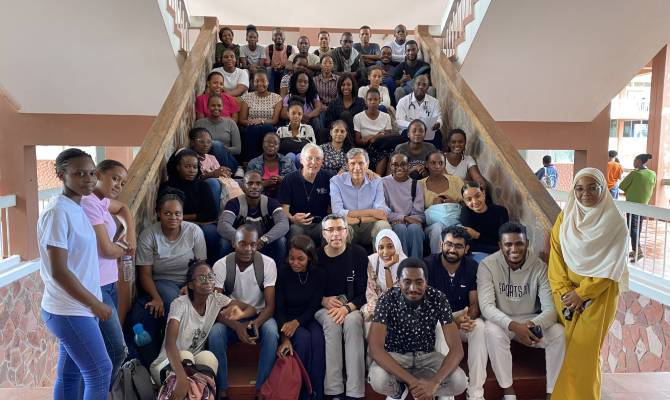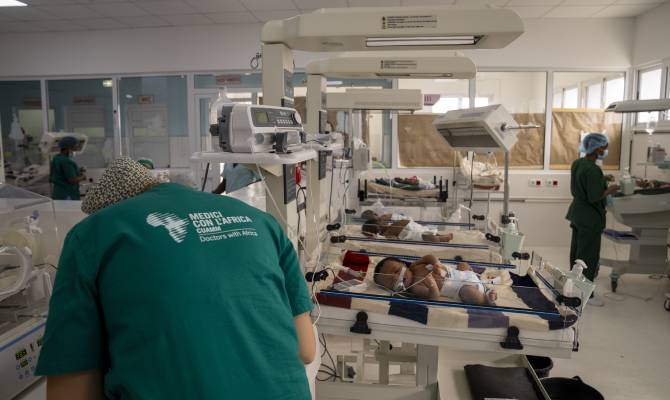Three operative ambulances covering 15 healthcare units, all those in the city of Beira in the province of Sofala, Mozambique. They take care of transferring emergencies and urgencies from peripheral health units to the city’s central hospital, a fundamental service that began immediately after cyclone Idai and continues to this day thanks to the project “UR-BEIRA: strengthening emergency medical services in the city of Beira”. The intervention, financed by the Italian Agency for Development Cooperation, is implemented by Doctors with Africa CUAMM, with the collaboration of various stakeholders: the Veneto Region in partnership with the District Health Service of the city of Beira, the Emergency Medical Service of the Ministry of Health of Mozambique, the Central Hospital of Beira, Ca’ Foscari University of Venice and the P.O. Croce Verde of Padua.
Doctors, nurses, nursing assistants and ambulance drivers are on the front line, together, every day, with the aim of saving lives. As of February 2022, there are 750 referrals per month on average, about 60 per cent of which are obstetric, neonatal and paediatric emergencies, but also medical-surgical emergencies in general. «We work in all kinds of situations, without sparing ourselves, to guarantee the safety of our patients, – says Cristina Zinguessa José Zaqueu Macucha, a maternal and child health nurse assigned to the ambulance of the Chingussura Health Centre -. The work in the ambulance is really challenging. We are all trained and qualified professionals, but each emergency is a story in itself. One moment we are rescuing patients in a serious condition, another God blesses us with a delivery that we assist in the ambulance. What we do is rewarding, we help many premature babies arrive alive at the hospital’s neonatal ward, we encourage mothers to have skin-to-skin contact with their newborn, in some cases we administer oxygen and always check vital parameters. Our activities do not always go as we would like, we also have sad days. When we cannot get our patients to the hospital alive, it is painful, – Cristina continues – every “emergency professional” has many stories to tell, some sad and some happy, which give strength to continue the work. Several times we have received and referred patients in a critical condition, but thanks to the quick intervention of some colleagues from the hospital in Beira, these patients have recovered».
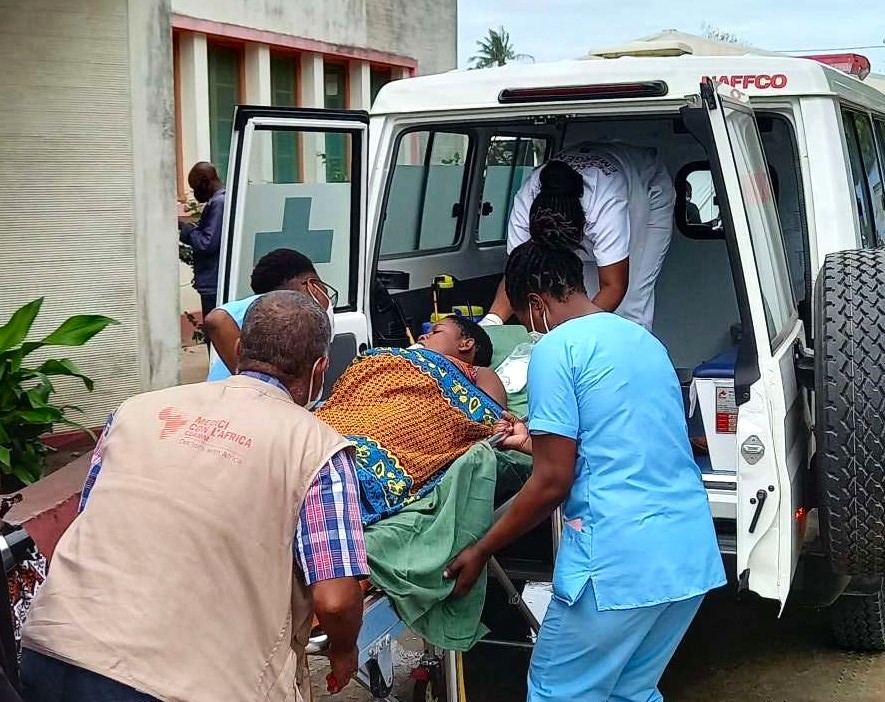
Emergencies have no timetable and when they come, they often do so all at the same time. A Tuesday a few weeks ago was one of those days when the ambulances in Beira never stopped. «When office activities permit, I like to accompany my colleagues during the ambulance service. That’s where you really find the sense of what we do, – says Marcello Mazzotta, CUAMM’s project manager in Beira. Tuesday was one of those days, and among the many referrals we made, there was that of a premature baby who weighed about 1 kg and therefore needed an incubator and support to breathe. So, we took him and his mother respectively to the Neonatology and Maternity wards at the hospital of Beira to receive the necessary assistance. On the way, the nurse of the ambulance put the baby in contact with his mother’s chest, practising kangaroo mother care, the skin-to-skin contact that avours the baby’s adaptation to the outside world, its development and also breastfeeding. Thanks to that simple gesture, the baby arrived at the hospital with a body temperature close to normal».
Each ambulance, each healthcare unit and four wards of the Beira hospital are provided with a mobile phone with monthly credit. Each health centre has a referral ambulance based on its geographical location. When the ambulance receives the call, if it is free, it immediately leaves to pick up the patient, otherwise it tries to contact the other ambulances to see which one can take care of the emergency first. «Even one more ambulance could make the service even more efficient, – says Marcello -. In the coming months, the project will involve setting up an operations centre managed by trained operators who will receive calls, perform triage and dispatch them to the relevant ambulances.
Although the service works and is essential for the population, challenges remain. «The condition of the roads, which are bumpy and often unpaved, makes it difficult to reach the health units. Journey times get longer and even speed must be moderate so as not to cause further damage to patients during transport», says Marcello. «Another difficulty is encountered in the health centres and at the central hospital in Beira, when dealing with colleagues, – adds Cristina -. Some of them have difficulty distinguishing an emergency from an urgency or even a routine case. Often, when we arrive in the emergency room, there are not enough nurses to receive patients. This system ends up being exhausting and most of the time we leave the health centres in a hurry without an answer».
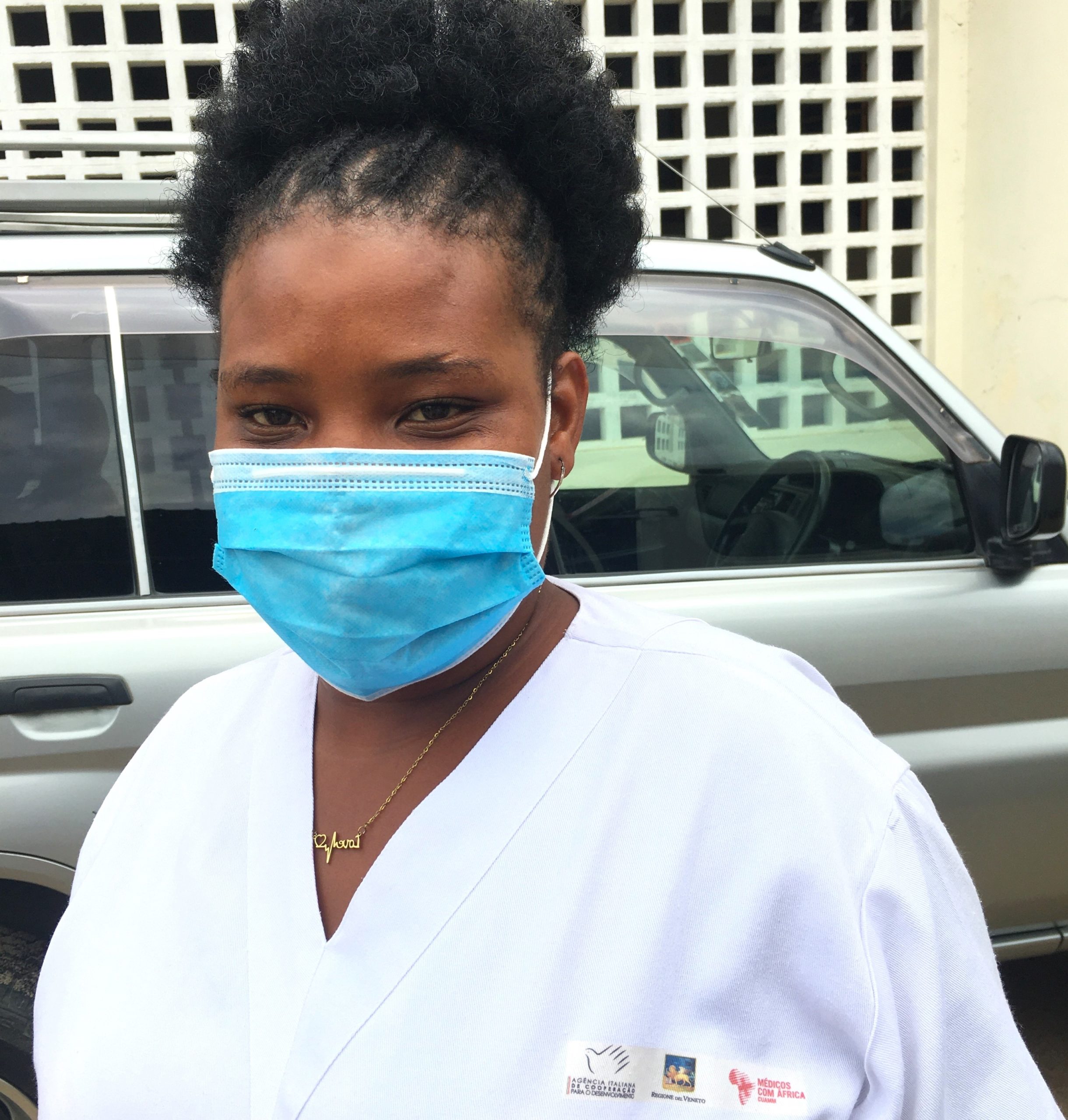
Investment is therefore being made in training and raising the awareness of health unit staff regarding the importance of triage to improve their ability to rapidly assess the clinical condition of patients and, consequently, the need to transfer them or not. In addition, work is being done to improve the population’s perception of the importance of the service provided by ambulances, which often fail to pass between vehicles on the roads even with their flashing lights and sirens on.
«One day, around one in the morning, I picked up a patient who had suffered a physical aggression, sustaining serious injuries all over his body. After two veins had been canalised and saline solution administered, he was loaded into the ambulance with all vital signs below normal. His brother, who was accompanying him, was inconsolable, – Cristina tells -. I always tried to keep the patient awake until we arrived at the hospital where he was immediately admitted to Traumatology and treated by the emergency room doctors. The brother thanked the ambulance team for the commitment and dedication».
That is the meaning of what we do: it lies there, in knowing that without the ambulance service many people would have no chance of being saved.
